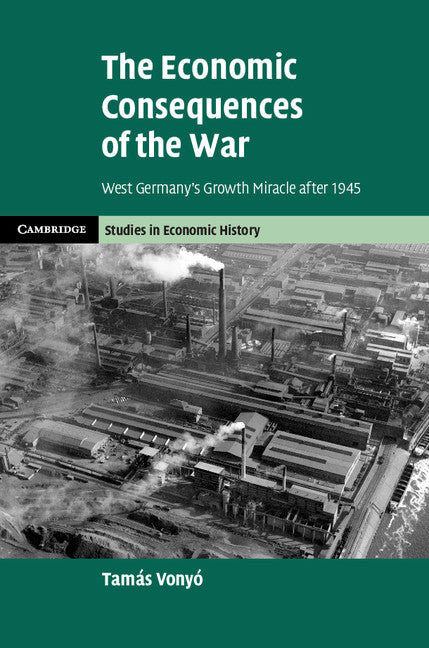Freshly Printed - allow 8 days lead
Couldn't load pickup availability
The Economic Consequences of the War
West Germany's Growth Miracle after 1945
This exploration of the statistical evidence on Germany's post-war reconstruction sheds new light on the foundations of German economic power.
Tamás Vonyó (Author)
9781107128439, Cambridge University Press
Hardback, published 22 February 2018
288 pages, 27 b/w illus. 26 tables
23.5 x 15.9 x 1.9 cm, 0.56 kg
'Vonyó's book is a most welcome enrichment to the history of West German economic recovery.' Armin Grünbacher, European History Quarterly
The 'German Question' dominated much of modern European history. In 1945, Germany was defeated and conquered. Yet, the Second World War did not destroy the foundations of her economic power. Dr Tamás Vonyó revisits Germany's remarkable post-war revival, tracing its roots not to liberal economic reforms and the Marshall Plan, but to the legacies of the war that endowed Germany with an enhanced industrial base and an enlarged labour force. He also shows that Germany's liberal market economy was in reality an economy of regulated markets, controlled prices and extensive state intervention. Using quantitative analysis and drawing on a rich historiography that has remained, in large part, unknown outside of Germany, this book reassesses the role of economic policy and the importance of wartime legacies to explain the German growth miracle after 1945 and the sharply contrasting experiences of East and West Germany.
Introduction
1. The audit of defeat: initial conditions
2. The economic geography of post-war dislocation
3. Growth accounts for West German industry
4. Made in Germany: the post-war export boom
5. Managing the miracle: economic policy
Conclusions.
Subject Areas: Economic history [KCZ], Economic growth [KCG], Monetary economics [KCBM], Social & cultural history [HBTB], Postwar 20th century history, from c 1945 to c 2000 [HBLW3], European history [HBJD]


